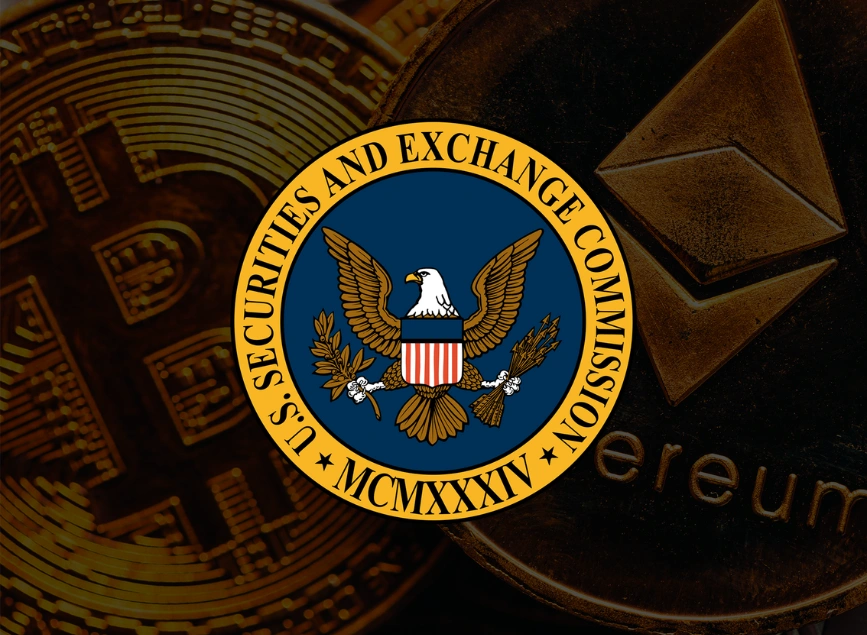
SEC’s New Crypto Task Force: A Game-Changer for Digital Asset?
The cryptocurrency industry is on the brink of a major regulatory shift as the U.S. Securities and Exchange Commission (SEC) launches a special task force to review and update its stance on digital assets. This move signals a significant departure from the agency’s previous approach, potentially creating a clearer and more supportive legal framework for crypto projects.
A New Era of Crypto Regulations?
For years, the SEC has maintained a strict and enforcement-heavy approach toward cryptocurrencies, often categorizing them as securities and subjecting them to stringent regulations. However, with the resignation of former SEC Chair Gary Gensler, the commission seems to be adopting a more collaborative and transparent strategy.
This shift has sparked optimism among crypto investors, developers, and businesses, who have long criticized the uncertainty and rigid enforcement of SEC policies.
Inside the SEC’s Crypto Task Force: What You Need to Know
Who’s Leading the Charge?
The new task force is being led by Hester Peirce, a well-known advocate for crypto innovation within the SEC. Dubbed “Crypto Mom” by the industry, Peirce has been vocal about the need for fair and transparent regulations that encourage growth rather than stifle it.
What’s the Task Force’s Mission?
The SEC’s crypto task force is tackling some of the biggest questions surrounding digital assets, including:
- Clarifying Token Classifications: Defining which cryptocurrencies are not securities.
- Protecting Legitimate Crypto Projects: Exploring how compliant projects can receive legal protections and operate with greater clarity.
- Collaborating With Regulators: Working alongside federal, state, and international bodies to create a more transparent regulatory framework.
- Engaging the Crypto Community: Inviting developers, investors, and even skeptics to contribute to shaping the final regulations.
Why This Matters for the Crypto Industry
This initiative is one of the biggest regulatory shake-ups in crypto history. Here’s why it’s so significant:
1. A Shift Away From Harsh Enforcement
Under Gary Gensler’s leadership, the SEC frequently used lawsuits and enforcement actions to regulate crypto—a strategy widely criticized for its lack of clear guidelines. The new task force aims to replace ambiguity with structured policies, making compliance easier for legitimate projects.
2. Addressing Long-Standing Industry Complaints
Many crypto businesses have argued that existing SEC rules were designed for traditional financial markets, making compliance nearly impossible for digital assets. This task force acknowledges those concerns and aims to modernize regulations for the crypto economy.
3. Encouraging Innovation Instead of Stifling It
Rather than treating crypto as a threat, the SEC now seems more open to supporting innovation. A regulatory framework that fosters growth while ensuring investor protection could lead to increased adoption, more institutional investment, and a stronger crypto market overall.
Read More: Seven Essential ETF Trading Strategies for Beginners
Key Appointments: Who’s Shaping the Future of Crypto Regulations?
The SEC has also appointed Landon Zinda, former policy director at Coin Center, as the senior advisor to the task force. His expertise in crypto policy and regulation could play a crucial role in shaping the SEC’s new approach.
What Does This Mean for Crypto Investors and Businesses?
The changes introduced by the SEC’s crypto task force could have far-reaching implications:
1. More Clarity, Less Uncertainty
With clearer regulations, businesses will better understand how to legally launch and operate crypto projects in the U.S. This could lead to greater market stability and fewer regulatory battles.
2. Easier Compliance for Crypto Projects
If the task force succeeds in defining which tokens are not securities, crypto startups and businesses may find it easier to register and operate within the legal framework.
3. A More Open and Innovative Crypto Market
Rather than forcing crypto companies to move offshore due to strict regulations, the SEC’s new approach could encourage innovation within the U.S., making the country a hub for blockchain technology and crypto development.
SEC’s Role in Crypto: A Quick Breakdown
If you’re new to how the SEC influences crypto, here’s a quick primer:
What Is the SEC?
The Securities and Exchange Commission (SEC) is the U.S. financial regulator responsible for overseeing securities markets, protecting investors, and enforcing financial laws.
Why Is the SEC Involved in Crypto?
The SEC believes many cryptocurrencies qualify as securities, meaning they should be registered and regulated like stocks and bonds to prevent fraud and market manipulation.
Are All Cryptocurrencies Regulated by the SEC?
- Securities (Most Altcoins): If a token is classified as a security, it must comply with SEC regulations.
- Commodities (Bitcoin & Some Others): Assets like Bitcoin do not fit the SEC’s definition of a security and are regulated as commodities instead.
Read More: Blockchain in US Government: Transparency and Efficiency
The Future of Crypto Regulations: What’s Next?
The SEC’s new approach could be a turning point for crypto regulation. While it remains to be seen how effective this task force will be, one thing is clear:
The era of unclear and overly restrictive regulations may be coming to an end.
Crypto investors, startups, and developers should closely follow the task force’s updates, as its decisions could shape the future of digital assets in the U.S.
Final Thoughts: Is Crypto’s Regulatory Future Looking Brighter?
With a new leadership approach, increased industry collaboration, and a focus on innovation, the SEC’s crypto task force could pave the way for a more structured, transparent, and supportive regulatory environment.
For the first time in years, crypto enthusiasts have a reason to be optimistic about the future of digital assets in the U.S.
Share
Hot topics

Best broker for gold trading
There’s always been a certain magic about gold. Before online charts and trading applications, people stored their wealth in coins and bars, trusting that gold would retain its value during...
Read more




Submit comment
Your email address will not be published. Required fields are marked *